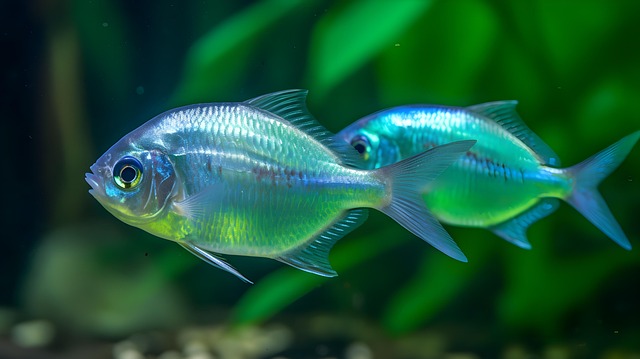The growing popularity of specialty aquariums caters to nature enthusiasts seeking eco-friendly, aesthetically pleasing, and educational home décor. These curated marine environments focus on specific ecosystems or rare species, driving sustainable practices within the industry through advanced filtration, controlled water conditions, and ethical sourcing. By minimizing waste, conserving energy, and adopting responsible feeding practices, specialty aquariums contribute to ocean conservation while offering immersive educational experiences that foster environmental stewardship and community engagement.
Specialty aquariums are transforming the way we interact with marine life, offering unique experiences while prioritizing sustainability. This growing trend empowers individuals to contribute to environmental conservation efforts without compromising aesthetics or functionality. From reduced energy consumption to responsible waste management, these eco-conscious setups redefine aquarium keeping. This article explores the rise of specialty aquariums, their environmental impact, design principles, and the surprising social and educational advantages they bring, all while shedding light on the future of sustainable aquatic habitats.
Understanding the Rise of Specialty Aquariums: A Growing Trend
In recent years, there’s been a noticeable surge in the popularity of specialty aquariums—a trend driven by an increasing awareness and concern for environmental sustainability. As consumers become more eco-conscious, they’re seeking out unique ways to bring nature into their homes while minimizing their ecological footprint. Specialty aquariums cater to this demand by offering curated marine environments that go beyond traditional fish tanks. These aquariums often focus on specific ecosystems, rare species, or innovative design elements, attracting a dedicated audience of enthusiasts who appreciate the beauty and educational value they provide.
This growing trend reflects a broader shift towards sustainable practices within the aquarium industry. By prioritizing specialized setups, hobbyists and professionals are encouraging responsible aquatic conservation efforts. Advanced filtration systems, carefully controlled water conditions, and ethical sourcing of organisms all contribute to maintaining healthy ecosystems both in captivity and in the wild. As a result, specialty aquariums not only serve as stunning focal points in homes and businesses but also raise awareness about biodiversity and the importance of protecting our planet’s precious aquatic resources.
The Environmental Impact and Sustainability Commitments
Specialty aquariums are more than just captivating displays of marine life; they also carry a significant responsibility to protect our oceans and ecosystems. In an era where environmental consciousness is paramount, sustainable aquarium practices have become essential. These commitments encompass reducing waste, conserving energy, and minimizing the impact on vulnerable marine habitats.
By adopting eco-friendly measures, specialty aquariums can contribute to the greater goal of ocean conservation. This includes utilizing energy-efficient systems, implementing recycling programs for water and waste, and supporting sustainable sourcing of aquarium residents. Moreover, many forward-thinking establishments invest in research and education initiatives aimed at promoting a deeper understanding and appreciation for marine ecosystems, fostering a global community dedicated to their preservation.
Designing and Maintaining Eco-Friendly Aquarium Systems
Designing and maintaining eco-friendly aquarium systems for specialty aquariums requires a thoughtful approach to minimize environmental impact. This involves selecting sustainable materials such as recycled glass, energy-efficient lighting, and filter systems that reduce water consumption. By opting for natural decorations like live plants and locally sourced rocks, aquarium owners can create vibrant habitats while preserving ecosystems.
Regular maintenance plays a crucial role in keeping these eco-conscious aquariums healthy. This includes monitoring water quality through regular testing, using organic cleaning products, and employing efficient recycling systems that reduce waste. Additionally, sustainable practices like responsible feeding and regular partial water changes ensure the long-term well-being of aquatic life within these specialty aquariums.
Benefits Beyond the Environment: Social and Educational Aspects
Specialty aquariums, focused on sustainability and eco-conscious practices, offer far more than environmental benefits. They serve as powerful educational tools, fostering a deeper understanding and appreciation for marine ecosystems among visitors. By observing diverse aquatic habitats and species up close, people gain insights into the intricate balance of nature, sparking curiosity about conservation efforts and our role in protecting our planet.
These aquariums also play a vital role in social development. They provide spaces for communities to gather, learn, and engage in conversations about environmental stewardship. Interactive exhibits and educational programs encourage visitors to share knowledge, fostering a sense of collective responsibility for the health of our oceans. This social aspect strengthens community bonds while promoting awareness and action towards creating a more sustainable future.
Specialty aquariums, driven by a growing trend and strong environmental consciousness, are revolutionizing the way we interact with marine life. By prioritizing sustainability and eco-friendly practices, these aquariums not only minimize their ecological footprint but also offer profound social and educational benefits. Through innovative design and dedicated maintenance, they foster a deeper appreciation for our oceans while promoting conservation efforts. As the demand for specialty aquariums continues to rise, their role in preserving marine ecosystems becomes increasingly vital.
